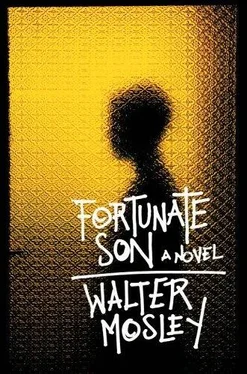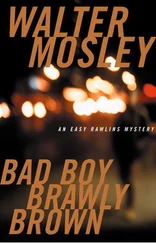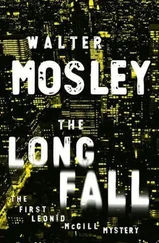He made his way into the old brick apartment building. There he set out candles to use when it was raining or too cold outside.
Mr. Meyers took Bruno at his word and struck Thomas Beerman from the class roll. Somehow the registration office also overlooked Thomas, and so he nearly ceased to exist in the files of the school system. The cut he got on the church wall turned into a scar, and though his body stayed small his hands became large and callused as a result of the work he took on.
Thomas decided that he would clean up his alley valley. And so he brought an old broom from the back porch and plastic trash bags from the bathroom to begin that task. He swept and picked up the papers, cans, and man-made items that had been thrown over the fence. The first place he cleaned was directly behind his father’s rented house.
The days went by peacefully for the next few weeks. Thomas explored and cleaned his little Eden. He left bread crumbs for the opossums and salvaged discarded furniture from various apartments in the abandoned building. In the dark, on the second floor, Thomas would get on his knees and feel himself sinking into the floor. He loved this feeling and would sometimes stay like that for hours. Once he stayed too long, and Elton was already home and angry that Thomas was so late from school.
“Where were you, boy?”
“I went to play at Bruno’s house.”
“I don’t want you seein’ that fat boy no mo’. Hear me?”
Thomas nodded, but he didn’t worry. Elton had other things on his mind. He wasn’t concerned about Thomas unless he was late for dinner.
The next day, Thomas had a conversation with his mother.
“Why’s Daddy so mad at me, Mama?” Thomas asked in his normal voice.
Then in a deeper, more musical register he replied, “Because when he was a boy he didn’t have anybody to be nice to him.”
“Like you are to me?”
“That’s right, honey,” Branwyn said. “And now you have to be nice to him and let him be mad. Don’t worry, I won’t let him hurt you.”
“Do you mind it that I don’t go to school, Mama?”
“You know I want you to be in school and to get smart like your brother and Dr. Nolan.”
“But I hate it, an’ it hurts my eyes.”
“Sometimes we have to do things we don’t like, Tommy.”
“I know. But I go to Bruno’s house after school sometimes and on Saturdays, and we do his homework together a little bit.”
“Well, okay,” Branwyn replied after a meditative silence. “For now. But later on you have to go back to school.”
“I promise.”
Thomas worked hard to clean up his alley paradise. Along the edges of the fence, he’d come upon small patches of wild strawberry plants. He loved eating them with the peanut butter sandwiches he’d make when he’d sneak into his father’s house in the middle of the day for lunch and other supplies.
When he wasn’t talking to his mother, he’d go to the oak tree and call to No Man. He’d put bread crumbs on the ground at his feet, and after some days the parrot would fly up and eat, croaking “no man” now and again. After a while the parrot would follow Thomas around looking for food and maybe, Thomas thought, a little company.
One late morning when going up to the house, Thomas found May sitting on the porch with her head on her knees, crying.
“Hi, May,” Thomas said.
When she looked up Thomas could see the ruined makeup running down her dark face.
“Hi, baby. What you doin’ here? Ain’t you supposed to be in school?”
“They let me come home for lunch,” he lied. “Why you cryin’?”
“Because I’m so stupid,” she said, sobbing. “Because I had to go play around and get your father mad at me. Now I’m miserable, and he changed the locks and his phone numbah. An’ I need to tell him that I’m sorry.”
The tears flowed down, and Thomas felt her pain. He reached out to touch her wet face.
“I could let you in,” Thomas offered. “But...”
“But what?”
“You can’t tell Daddy that I come home sometimes. He don’t know I do that, an’ he’d get mad.”
May wiped her eyes and she was beautiful again. Her smile warmed little Thomas, who had been chilled from picking up dirty, wet tin cans all morning.
“How long you gonna be here?” May asked.
“About a hour, I guess.”
“I’ma run to the store an’ get food to make for dinner.”
She ran down the porch stairs, and Thomas went up into the house. Since May had been gone neither Elton nor Thomas had even picked a pair of socks up off the floor. There were beer cans and dirty dishes scattered everywhere, with roaches sifting in and out of the debris. There were unopened letters and bills strewn across the coffee table, and the kitchen was a total mess. The sink was piled with dishes soaking in cold, gray water. There were clothes all down the hallway, and even May’s sewing room was turned upside down from Elton going in there now and then to look for a pair of scissors or some papers he needed.
The only room that hadn’t suffered was Thomas’s back porch. Elton had offered Thomas May’s room, but the boy demurred. He said he liked his room.
Sour Elton said, “Suit yourself, fool.”
May came back with three bags of groceries, and Thomas let her in.
“What is that smell?” she asked as soon as she walked in the door.
Thomas hadn’t noticed it.
“You just go on to school,” she said. “And when you get home I will have a good meal for you.”
Thomas went up to the roof of his abandoned clubhouse because it was a cloudy day and he wanted to hear the school bell so that he could get home and into his room before Elton returned.
He unlatched the roof door and pushed it open. He’d been up there a few times to look out over the neighborhood, but he usually stayed inside where he could be sure that nobody would see him.
But that day he found another surprise. Sitting at the edge of the roof smoking a cigarette was an olive-skinned, wavy-haired teenager. Thomas froze when he saw the boy, but it was already too late to run.
The teenager turned and said, “Hey, bro,” with a sing to his voice. “What you doin’?”
Thomas was shocked by the boy’s eyes. They were bright, light gray, like Thomas’s mother’s eyes.
“Nuthin’,” Thomas said. “What you doin’ here?”
“Run away from the foster home they had me in.” The boy slapped the beat-up brown suitcase that sat at his feet. “I climbed up the fire escape. You got the key to that door?”
“It’s just a latch on the inside,” Thomas said. “This is my clubhouse.”
“You think you could let me stay in your club awhile, little man?”
Thomas realized that the sing in the boy’s voice was close to the accent that he heard when Mexicans spoke to him in English.
“What’s your name?” Thomas asked.
“Pedro.”
“Why you look like that?”
“Like what?”
“I don’t know.”
“My mother’s a beaner,” Pedro said then. “And my father’s a spook. I don’t know where I got the eyes though. All I know is that the kids beat me up an’ down the street.”
“What’s a foster home?” Thomas asked.
“It’s where they put you when you ain’t got no mother and father.”
“But you have.”
“Not no more,” Pedro said. He took a long drag on his cigarette. “My mom died, and my dad live down on Figueroa. He sells smack and some coke down there, and he don’t wanna know about me.”
“If you stay here,” Thomas said, “you can’t tell anybody else, okay?”
“Sure, man. I ain’t gonna stay too long anyway. I got a sister up in Seattle. I’ma go up an’ live with her just as soon as I get the thirty-five dollars for a Greyhound.”
Читать дальше












